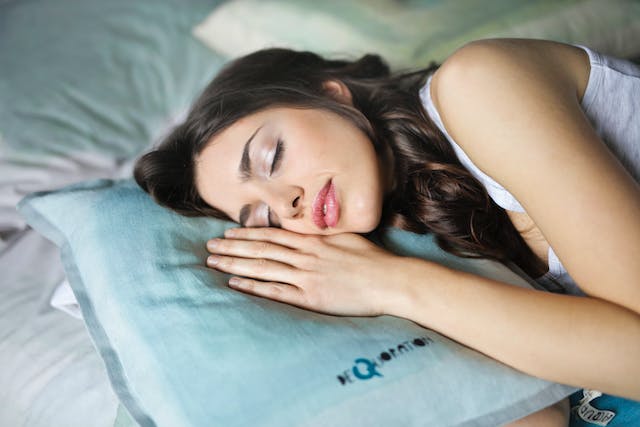Sleep apnea, a common sleep disorder characterized by interrupted breathing during sleep, affects millions of individuals worldwide. Beyond the well-known symptoms of daytime fatigue and impaired concentration, sleep apnea can have a significant impact on the quality of our dreams and the crucial stage of sleep known as Rapid Eye Movement (REM) sleep. In this article, we will explore the intricate relationship between sleep apnea, dreams, and REM sleep, shedding light on how this condition influences our nightly journeys through the subconscious.
Understanding Sleep Apnea
Before delving into the effects of sleep apnea on dreams and REM sleep, it’s important to grasp the fundamentals of this condition. Sleep apnea in Lake Mary occurs when the upper airway becomes partially or completely blocked during sleep, leading to pauses in breathing. These pauses, known as apneas, can last for seconds to minutes and often lead to brief awakenings, disrupting the natural sleep cycle.
The Role of REM Sleep
REM sleep is a critical stage of the sleep cycle characterized by rapid eye movements, increased brain activity, and vivid dreaming. It is during this stage that our minds engage in complex cognitive processes, memory consolidation, and emotional regulation. Disruptions in REM sleep can have far-reaching effects on cognitive function, mood, and overall well-being.
The Impact of Sleep Apnea on Dreams
Fragmented Dreams: Sleep apnea, with its frequent awakenings, can lead to fragmented dream experiences. Individuals with sleep apnea may find that their dreams lack coherence or continuity, making it difficult to follow a narrative.
Vivid Nightmares:
Some studies suggest that sleep apnea may increase the occurrence of vivid and intense nightmares. The interrupted sleep patterns and oxygen deprivation associated with sleep apnea can contribute to heightened emotional experiences during dreams.
Impaired Dream Recall:
Individuals with sleep apnea may experience difficulty recalling their dreams upon awakening. This is attributed to the disruptions in sleep architecture caused by apneas, which can affect memory consolidation processes.
Emotional Intensity:
Sleep apnea can amplify the emotional intensity of dreams. This means that individuals may experience dreams with heightened emotional content, ranging from intense joy to extreme fear or anxiety.
Altered Dream Themes:
Some research suggests that individuals with sleep apnea may have altered dream content, with themes related to suffocation, drowning, or other experiences associated with breathing difficulties.
Managing Sleep Apnea for Improved Dream Quality
Continuous Positive Airway Pressure (CPAP) Therapy:
CPAP therapy is a highly effective treatment for sleep apnea. It involves wearing a mask that delivers a continuous flow of air, preventing airway obstruction and promoting uninterrupted breathing.
Oral Appliances:
Specially designed oral appliances can help keep the airway open by repositioning the jaw during sleep. These devices can be a more comfortable alternative for individuals who find CPAP therapy challenging.
Lifestyle Modifications:
Adopting a healthy lifestyle, including regular exercise, maintaining a balanced diet, and avoiding alcohol and sedatives, can contribute to improved sleep quality for individuals with sleep apnea.
Frequently Asked Questions
Can untreated sleep apnea lead to more frequent and intense nightmares?
Yes, untreated sleep apnea can contribute to vivid and intense nightmares. The interruptions in breathing and fragmented sleep patterns associated with sleep apnea can lead to heightened emotional experiences during dreams.
Can the use of a CPAP machine impact dream experiences?
Some individuals may initially experience changes in their dream patterns when using a CPAP machine. Adjusting to the new sleeping environment with the mask and steady airflow can influence dream content and frequency.
Does sleep apnea affect the ability to lucid dream?
Sleep apnea and its disruptions in sleep architecture can potentially make it more challenging to achieve lucid dreaming, as it requires stable and uninterrupted REM sleep cycles.
Can addressing sleep apnea lead to improvements in overall dream quality?
Yes, effectively managing sleep apnea, whether through CPAP therapy or other treatments, can lead to improved sleep quality, which may positively impact the vividness, coherence, and emotional content of dreams.
Are there specific dietary or lifestyle changes that can alleviate sleep apnea-related dream disturbances?
Adopting a healthy lifestyle, including maintaining a balanced diet, regular exercise, and avoiding alcohol and sedatives, can contribute to improved sleep quality and potentially lead to more restful and satisfying dream experiences for individuals with sleep apnea.
Conclusion
Understanding the intricate relationship between sleep apnea, dreams, and REM sleep sheds light on the far-reaching effects of this common sleep disorder. By recognizing the impact of sleep apnea on our nightly journeys through the subconscious, we can take proactive steps towards effective management and ultimately, improved sleep quality and overall well-being. Seeking professional guidance and exploring treatment options, including consulting with a Lake Mary dentist, can lead to a more restful, fulfilling sleep experience for those affected by sleep apnea.

